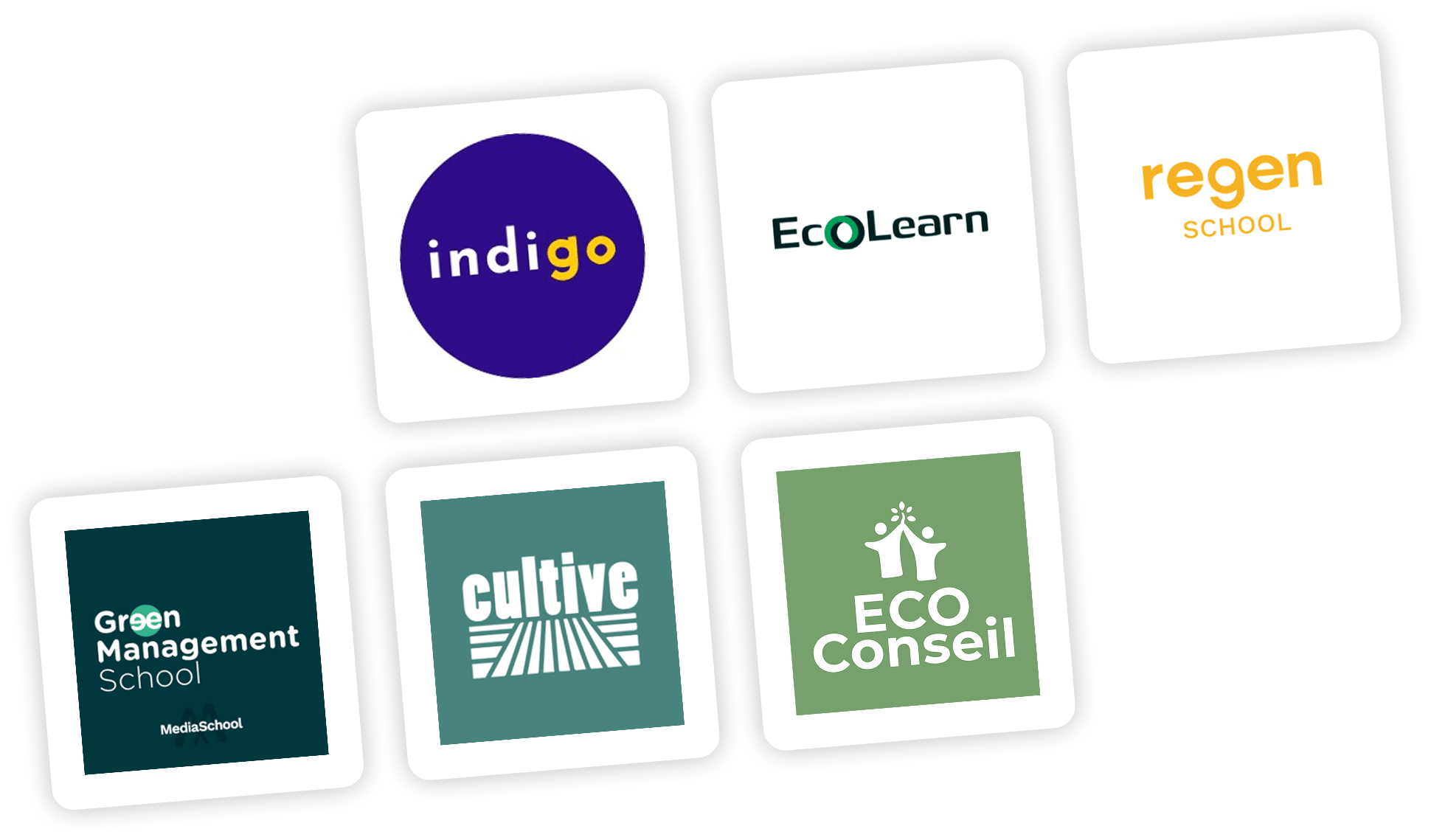A new career in data: is it right for me?
Would you like to change your horizons and move into a meaningful tech profession? Does talking numbers scare you? Then the Data sector could well be your new vocation. We explain it all in this article!
47% of French employees wanted to change jobs in 2021, according to the latest survey by the De Vinci Group. This compares with just 33% in 2015. Professional reconversion is on the rise, and this trend is not escaping startups and high-impact structures. With the massive explosion in data, companies are increasingly turning to Data to make informed decisions. As a result, Data professionals have become key players in many sectors.
The ABCs of Data
The Data field offers a variety of career opportunities, depending on the area of activity, but Data teams are generally made up of the following three professions: Data Analyst, Data Scientist and Data Engineer.
- Data Analyst is to collect, cleanse and analyze data to help organizations make informed decisions. Thanks to their skills in data mining, statistical analysis and visualization, Data Analysts play an essential role in understanding trends and patterns hidden in data.
- Data Scientist is then responsible for interpreting this data and building predictive models. Using advanced artificial intelligence and machine learning techniques, the Data Scientist explores data to identify relationships, correlations and predictions that enable companies to make informed decisions and anticipate trends.
- Data Engineer, plays a crucial role in facilitating access to data. It designs and manages the infrastructure needed to store, process and manipulate data, ensuring that data teams have the tools they need to make the most of their resources.
Data in the public interest
Accustomed to making data speak for a company's economic interests, the use of data can also meet strong needs in the general interest, as technology can sometimes be a lever that multiplies positive impacts.
At the top of the list, Big Data has a crucial role to play in environmental issues.
Certain data represent a valuable source of information for tackling the many challenges linked in particular to climate change (green mobility, carbon footprint, energy efficiency, etc.). This makes it possible to formulate targeted solutions to reduce negative environmental impact and guide more resilient strategies.
Data can also help SSE (Social Solidarity Economy) companies improve their operational efficiency, better understand their target audiences and measure the social impact of their activities, making it easier to make informed decisions and optimize their actions for positive change. Data enables them to measure and quantify the social impact of their activities, track progress and identify areas for improvement.
In addition to Tech for Good startups, which regularly recruit Data profiles, the DataforGood association brings together a community of over 4,000 tech volunteers (Data Scientists, Data Analysts, Data Engineers, Developers, etc.) committed to the general interest. This platform brings together innovative and promising projects focused on social and environmental impact. Among these initiatives is Carbon Fight, a carbon calculator that enables users to track their emissions on a daily basis and obtain personalized advice on how to reduce their carbon footprint. Another example is Ceebios, which facilitates the exploration of a huge database dedicated to biodiversity. An effective tool for identifying relevant biological models and accelerating frugal innovations inspired by living organisms.
With the talent shortage facing the tech sector, professional retraining appears to be a godsend for companies wishing to combine impact and growth. Retrained profiles bring diversity and a unique perspective, encouraging the development of innovations that serve the public interest. And in this context, bootcamps and skill courses could well play a major role...
Training at the heart of retraining
According to Da Vinci, 4 out of every 10 career changes take place without any training, so taking part in a bootcamp or skill course is a real plus for candidates keen to land the best jobs in the Data field. These intensive programs offer accelerated immersion in essential Data skills, with hands-on courses focusing on the latest technologies and tools. They enable learners to rapidly develop technical skills and familiarize themselves with industry best practices. "When you're making a major career shift, a bootcamp is undoubtedly the most practical and effective solution for developing new technical skills," explains Jonathan Pinet, co-founder of Go Fenix, a structure that helps working people retrain in tech professions. This is all the more true for skilled professions such as Data Analyst or Data Scientist, for example."
By breaking away from traditional training channels, bootcamps also promote inclusion, diversity and parity of profiles. "Professional retraining is an opportunity to bring more diversity and parity to a tech sector that only has 18% female employees," testifies Jonathan Pinet. Recruiting returnees from a bootcamp is an effective way for companies to find an atypical profile. And the diversity of their profiles could well facilitate the development of innovations in the public interest.
Another training option is skill courses, which are faster-paced and enable professionals to enhance their skills in a particular field. These shorter, online courses are designed to fit around the schedules of working people. Participants can learn at their own pace, access learning resources at any time and benefit from mentoring sessions to help them solve business problems.
Are you a working person, student or retraining professional looking for new skills to work in the Data sector? Wild Code School offers a number of Data training courses, including a 5 months bootcamp to become Data Analyst.
Are you looking for new skills and want to discover the secrets of Business Intelligence at your own pace? Discover the certification for Power BI et SQL from the Wild Code School, which adapts to any schedule. This online training course, lasting around 50 hours, adapts to any schedule and offers free access to mentoring sessions to solve specific business problems.
Taking action
👉 Discover all Wild Code School trainings
Special report: Tech & impact
👉 Tech & Impact : ennemies or allies ?



